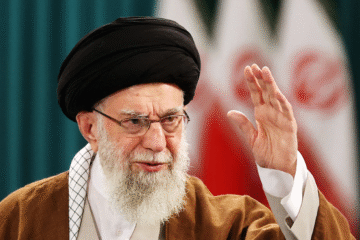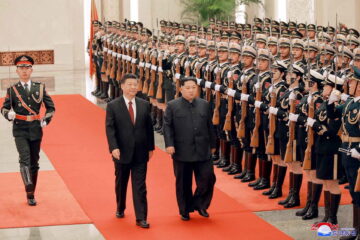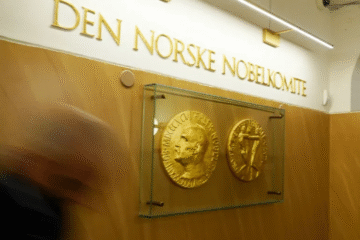Should we FOLLOW or FREEZE THE MONEY when fighting terrorism and organised crime?
According to the report of the 9/11 Commission, intelligence agencies should “expect less from drying up terrorist money and more from following the money for intelligence”[1]. However, such a recommendation seems to contradict the UN Security Council’s 2001 Resolution 1373. Indeed, the latter declares that States shall “freeze without delay funds and other financial assets or economic resources” of people and entities linked to terrorism[2]. Participants of the Anti-Money Laundering (AML)/Countering Finance Terrorism (CFT) regime are torn between two seemingly opposite strategies: following the money to map criminals and terrorists’ connections to eventually dismantle their network, or freezing the money to disrupt specific criminal or terrorist operations through financial means[3].
In this essay, we will argue that AML/CFT units should follow the money as a default strategy, from which they should deviate and favour freezing the money in emergency situations or depending on political, moral and practical factors.
First of foremost, we will see that following the money is more efficient than freezing it in the fight against money laundering and terrorism financing, and should therefore constitute the default strategy (I). Then, we will understand that following the money may actually not be appropriate for emergency cases or that it may be an ideal that doesn’t reckon with decision-makers’ political, moral and practical considerations (II).
Part 1
Following the money should be the default option since it is more efficient to fight money laundering and terrorism financing compared to freezing the money.
***
Participants of the AML/CFT regime should follow the money as a default strategy against money laundering and terrorism financing, because it allows to map networks and dismantle them through various means, which produces long-term positive effects.
For instance, in 2006, British and American authorities tracked financial outflows from a UK-based Islamic charity claiming to provide humanitarian relief for victims of the earthquake that hit Pakistan in 2005. By following this flow of money, law enforcement authorities discovered that it funded a terrorist cell linked to an extremist group in Kashmir that was plotting attacks against aircraft flying from the UK to the US and Canada. Consequently, they managed to thwart the terrorist plot by arresting multiple suspects of the network they had discovered by following the money[4]. Had they just cut the money supply, by shutting down the charity for example, British and American authorities would not have been able to dismantle the terrorist cell. Following the money indeed allowed them to broaden the scope of their action and to prevent later attacks given that terrorists are now in jail.
Besides, one may argue that freezing the money works well to deter terrorists and criminals to engage with the conventional financial system[5]. However, such a strategy turns out to be rather inefficient in the long run, because terrorists and criminals remain free and can adapt their processes to conduct new operations. Moreover, as Matthew Levitt and Katherine Bauer assert, following the money approach may have more deterrence power, because law enforcement authorities do not reveal to terrorists that they monitor them, thus making them doubt as to whether they are being watched, which creates a climate of suspicion and fear[6].
Furthermore, operations to freeze the money are bound to repeat as terrorists are still on the loose. This implies that eventually the total cost of several such operations may exceed that of a unique “follow the money” operation that has longer-term benefits, for the same, or lesser, result. Consequently, public decision-makers should favour following the money as public resources would be used more rationally.
***
This essay affirms that following the money should be a default strategy, because the effects of freezing the money are simply too marginal to tackle efficiently the threats that money laundering and terrorism pose.
As a matter of fact, the limited effectiveness of freezing the money in the fight against money laundering and terrorism financing puts into question the relevance of this strategy. As the 9/11 Commission remarked, “trying to starve the terrorists of money is like trying to catch one kind of fish by draining the ocean”[7]. Indeed, even if seizing assets and cutting off funds might disrupt some of their activities, terrorists and criminals can adapt rapidly. Moreover, they already have many other options to raise and move money[8]. Indeed, freezing money that moves across the conventional financial system only has a marginal impact, partly because terrorists thrive on international illegal traffics outside this conventional system. For instance, terrorist groups in the Sahel take advantage of drug trafficking between Latin America and Europe given that merchandises have to pass through the Sahara[9]. Freezing the money seems simply not up to the challenge that such complex financing systems represent.
Additionally, as we mentioned earlier, freezing assets forces criminals and terrorists to adapt their methods, which often results in the development of informal and unregulated financial systems. Indeed, Peter Neumann underlines the growing importance of Hawala networks to send remittances and transfer illicit funds. These decentralised systems, towards which criminals and terrorists have been pushed as a result of money freezing operations, have actually facilitated and secured their financial activities[10].
Furthermore, the 2022 Report on the state of effectiveness compliance with FATF standards[11] points out the delay between the decision to cut off criminals and terrorists’ money supply and the implementation of the decision. This delay is detrimental to the effectiveness of the “freeze the money” strategy since criminals and terrorists have time to dissipate their funds. Therefore, in practice, freezing the money does not work as well as it should in theory.
Besides, freezing the money confines the fight against terrorism financing and money laundering solely to the financial dimension. Therefore, the effectiveness of such a strategy is considerably limited when targets, even more when they happen to be lone wolves, operate within informal economies. To remedy this, law enforcement authorities may adopt sanctions against entire national economies. However, there is an ensuing risk that innocent people and legitimate organisations become collateral victims. For instance, Peter Neumann explains that, by no longer accepting cash transfers to Somalia, Western banks have aggravated the already precarious situation of 40% of the population that relied on remittances. That’s why in 2015, Somali Americans launched the hashtag #IFundFoodNotTerror to protest against this indiscriminate financial sanction that initially aimed at cutting off funds for the al-Shabaab group[12]. Likewise, according to the Overseas Development Institute, post-9/11 counter-terrorism laws have established de-risking practices that significantly hindered the work of legitimate and beneficial charities that fund humanitarian operations in countries with active terrorist organisations[13].
Part 2
However, following the money is only an ideal default strategy that may be left aside in emergency situations and for political, moral and practical considerations.
***
This essay argues that situations of emergency justify freezing the money as an extraordinary measure to remove an imminent threat against a country’s population and vital interests.
For instance, in 2006, Filipino authorities managed to cut off funds destined to Abu Sayyaf terrorists, which reportedly prevented the group from carrying out an imminent attack against a chemical plant in Manila[14].
Indeed, sometimes law enforcement authorities have no other choice but to freeze the money to ensure security given that it is sometimes too late to conduct in-depth investigations. As a matter of fact, if these authorities fail to protect citizens, who relinquished some of their freedom for security, then they break the social contract. This can undermine a population’s trust in its institutions, provided that it becomes known that authorities could have frozen the money and prevented an attack, for instance.
We may recommend to freeze the money instead of following the money in emergency situations, but there is then a difficulty to determine what constitutes an emergency.
For instance, a US intelligence agency may follow the money that funds a Sahelian terrorist organisation, while Malian authorities would rather freeze the money. Indeed, Mali may consider the threat as urgent since its population can be attacked anywhere at any time. On the contrary, the American population is not under an imminent threat from this Sahelian group, thus US authorities can afford to take time to follow the money.
There can also be different risk assessments and readiness to qualify a situation as an emergency between countries with relatively similar threat exposure. It was the case in 2006 during the investigation on the terrorist plot to blow up transatlantic aircraft. In fact, US and British authorities disagreed on whether or not to keep on collecting intelligence[15]. The US eventually convinced their British counterparts and froze the money in time to prevent the terrorist attack.
Therefore, diverging risk assessment, particularly on the imminence of a given threat, explains differences in the choice of strategy to fight it. In any case, when a threat is imminent against one’s population and vital interests, this essay considers that one should freeze the money to remove it.
***
Recommending following the money as a default strategy may only be wishful thinking as it doesn’t take into account decision-makers’ political, moral and practical considerations, which may influence their decision towards freezing the money.
There may be political pressure to freeze the money and seize assets, despite it being less efficient than following the money, solely for political motives and personal gains. For example, in the Philippines, when President Duterte took office in 2016, he launched a war on drug and adopted a violent approach with the goal of eradicating illegal drug trade. In fact, he dismissed “follow the money” in favour of “freeze the money”. However, according to the head of drug enforcement for the Philippine National Police, Colonel Romeo Caramat, this strategy only had a limited impact on money laundering linked with drug trafficking, because it only reduced criminality and led to the capture of low-level criminals without ever worrying “big drug bosses”[16]. Following the money would have allowed to track leaders of the drug network and potentially led to their arrest. As a matter of fact, Rodrigo Duterte promised during his 2016 campaign to bring back safety by conducting a war on crimes to “kill criminals”[17]. As a consequence, he preferred freezing the money as it brought tangible results rapidly and helped him increase his popularity. In fact, in June 2019, around 82% of the Filipino population was reportedly satisfied with the anti-drug campaign[18], regardless of its actual effectiveness to curb drug trafficking on the long-term.
Furthermore, decision-makers may prefer freezing to following the money for moral considerations. As mentioned earlier, following the money consists in accepting little short-term costs to prevent bigger medium/long-term ones. However, when these little short-term costs are actually human lives, as few as they may be, being threatened by terrorism for example, one has the right to wonder whether it is acceptable to tolerate them in a utilitarian logic. There is also the question of one’s perception of one’s mandate and responsibility to protect. A UN official may opt for a different strategy than a public servant who only serves his country. The former will probably advocate for freezing the money whatever the case in order to protect the world’s population, while the latter will favour following the money as long as his country’s population and vital interests are not at stake. However, decision-makers may sometimes deviate from this logic and follow their own convictions and ethics, irrespective of their mandate and scope of responsibility.
Additionally, a lack of resources may justify resorting to freezing the money instead of following it. In fact, the latter option requires sufficient resources to sustain a long-term in-depth investigation, as well as appropriate means to do so discretely. Moreover, following the money in order to eventually disrupt a whole criminal or terrorist network may be an objective too ambitious and way above one’s means.
Consequently, law enforcement authorities may choose to freeze the money instead of following it for political, moral and practical reasons that the idealistic recommendation made in the first part of this essay didn’t take into account.
Conclusion
We have thus come to the conclusion that participants of the AML/CFT regime should follow the money as a default strategy, because it allows them to map criminal and terrorist networks and to subsequently dismantle them for long-term benefits. Moreover, given that freezing the money only marginally impacts money laundering and terrorism financing due to criminals and terrorists’ adaptability and complex financing systems, this essay asserts that following the money should be a default strategy. Nonetheless, we saw that in emergency situations, justifying moving away from the default option, following the money is no longer appropriate and should be substituted by a strategy relying more on freezing the money. The objective is indeed to remove as quickly as possible an imminent threat to a country’s population and vital interests, even though there may be diverging view as to what constitutes an emergency depending on one’s standpoint. Moreover, setting “follow the money” as a default option may be idealistic since it overlooks decision-makers’ possible preference for freezing the money as an approach more suited to their needs and the environment in which they evolve. Indeed, we highlighted the fact that political, moral and practical factors may come into play to justify freezing the money instead of following it.
[1] The 9/11 Commission Report: Identifying and Preventing Terrorist Financing. Committee on Financial Services of the US House of Representatives, 108th Legislative Body, Session 2. 23 Aug. 2004.
[2] UN Security Council. Resolution 1373 (2001). 28 Sept. 2001.
[3] Levitt, Matthew. Follow the Money: Leveraging Financial Intelligence to Combat Transnational Threats. Georgetown Journal of International Affairs, Vol. 12, N°1,Winter/Spring 2011, pp. 34-43.
[4] Levitt, Matthew, and Katherine Bauer. Can Bankers Fight Terrorism: How You Get When You Follow the Money. Foreign Affairs, vol. 96, no. 6, November/December 2017, pp. 144-150.
[5] FATF. Report on the State of Effectiveness Compliance with FATF Standards, FATF, Paris, 2022, p.40.
[6] Levitt and Bauer (2017).
[7] The 9/11 Commission Report: Identifying and Preventing Terrorist Financing. Committee on Financial Services of the US House of Representatives, 108th Legislative Body, Session 2. 23 Aug. 2004.
[8] Levitt and Bauer (2017).
[9] Yégavian, Tigrane. L’Afrique de l’Ouest, ventre mou du narcoterrorisme. Conflits : Revue de Géopolitique, 7 July 2021.
[10] Neumann, Peter R. Don’t Follow the Money: The Problem with the War on Terrorist Financing. Foreign Affairs, vol. 96, no. 4, July/August 2017, pp. 93-102.
[11] FATF. Report on the State of Effectiveness Compliance with FATF Standards, FATF, Paris, 2022, p.45.
[12] Neumann (2017).
[13] Pantuliano, Sara et al. Counter-Terrorism and Humanitarian Action: Tensions, Impact and Ways Forward. HPG Policy Brief 43. Overseas Development Institute, London, October 2011.
[14] Levitt (2011).
[15] Roston, Aramhe, and Lisa Myers. Source: U.S., U.K. at Odds over Timing of Arrests. NBC News Investigative Unit – NBC News, 12 Aug. 2006.
[16] Allard, Tom, and Karen Lema. Exclusive: “Shock and Awe” Has Failed in Philippines Drug War, Enforcement Chief Says. Reuters, 7 Feb. 2020.
[17] Guardian staff and agencies. Philippines President Rodrigo Duterte Urges People to Kill Drug Addicts. The Guardian, 1 July 2016.
[18] Allard and Lema (2020).



0 Comments